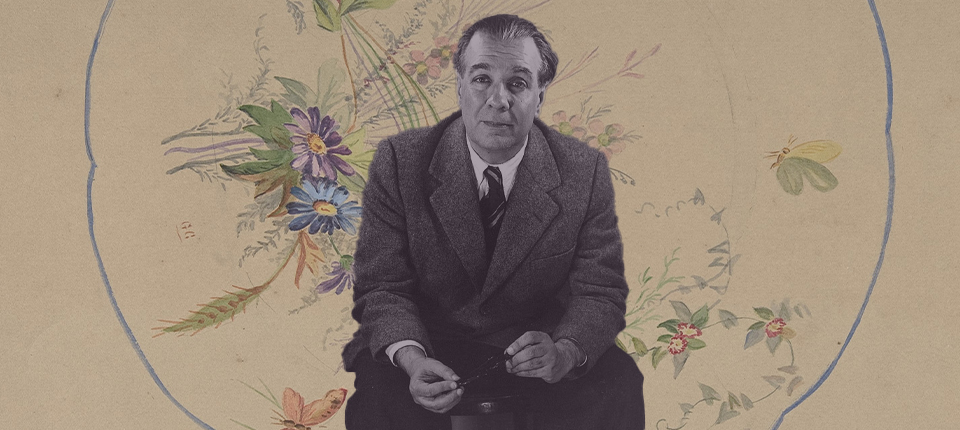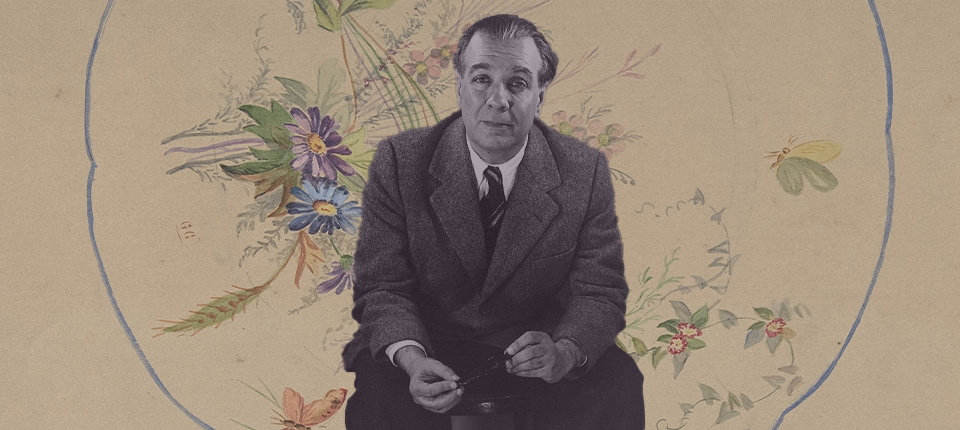The Best of the Literary Internet, Every Day

TODAY: In 1986, Jorge Luis Borges dies.
- Susan Gubar examines the life and work of Marianne Moore, America’s unexpected celebrity poet. | Lit Hub Biography
- Don’t have time to read every summer reading list? Emily Temple did it for you. Here’s our ultimate summer reading list. | Lit Hub Reading Lists
- “I see it more as a constant conversation between my two mother tongues.” On the powerful joy of writing in two languages. | Lit Hub Craft
- Jaha Nailah Avery on the significance of Addy Walker, the first Black American Girl doll. | Lit Hub History
- Sarah Viren reports on the firing of a pro-Palestinian professor and the murky future of academic freedom. | The New York Times Magazine
- “These are the final words of Airless Spaces, but the book is ouroboric: only physics prevents you turning the page and finding the first again..” Emmett Rensin asks, what happened to Shualmith Firestone? | The Point
- What’s a reader to do with books that are loaded with arsenic? | The Guardian
- “M said, ‘I don’t care what they do to me. Only God decides.’ He was both lying and telling the truth.” Liv Veazy writes a dispatch from immigration court. | n+1
- Poet Tom Sleigh pays tribute to Christopher Merrill, “a latter-day Herodotus, interested in everything, dismissive of nothing.” | Words Without Borders
- Why it matters that the Mark Twain Papers and Project at UC Berkeley lost its National Endowment for the Humanities funding. | San Francisco Chronicle
- David Beer wonders what the fear of being mistaken for AI will mean for our writing styles. | 3 Quarks Daily
- Amanda Guinzberg asked ChatGPT to help her choose some essays to send to an agent. The result was “the closest thing to a personal episode of Black Mirror I hope to experience in this lifetime.” | Everything Is a Wave
- “Out with the auto-performance; in with the anti-performance.” Alexandra Tanner on Nathan Fielder’s oeuvre, Katie Kitamura’s Audition, and what it means to perform. | The Point
- Catherine Lacey writes an ode to her 250-person, all-nudes group chat. | The Cut
- Jennifer Egan on Jane Austen’s Emma, “the most physically constricted of her works, which makes it also the most virtuosic.” | The Paris Review
- “The house was depressing because Pat did not consider herself to be among the living.” Elena Gosalvez Blanco remembers working for Patricia Highsmith. | The Yale Review
- “What Sabir wants is food, medicine, diapers, and a decent home rather than a tent. He wants what all Palestinians want—not to line up for aid packages, not to fight over flour, but to eat the foods that our own hands grow.” Mosab Abu Toha on the everyday horror of life in Gaza now. | The New Yorker
- Sarah Aziza on the Palestinian American dream: “The US, for all the violence it wreaked outside its borders, promised safety and privilege to those inside its fold. In short, gaining entry here might protect my father and his family from what happened there.” | The Nation
- Rebecca Jennings explains why reading long, challenging books might be the key to restoring your attention span. | Vulture
Also on Lit Hub:
15 years of The Common through its covers • Exploring displacement, trauma, and memory • The charged meaning of hair in 19th-century America • High school novels (for adult readers!) • A traumatic birth and the many that came before • King Lear, Maoist China, and the unpredictable nature of power • How Tacoma became a 1920s hotbed of crime and kidnapping • B. Pietras considers the queer works of Sylvia Townsend Warner • This week’s new books! • Authors take the Lit Hub questionnaire • Jess Walters reveals how many breakfasts he eats • Books with fantastically disastrous party scenes • Fusing fiction and biography • Reimagining The Great Gatsby as a Black American story • The legacy of Project Plowshare and American nuclear testing • How Charles Sumner convinced Abraham Lincoln to take a stand • Preserving the memory of Black communities in Los Angeles • Writing a different kind of cancer story • A’Lelia Bundles on telling Black women’s stories • The wilting of a family spinach dynasty • How Nobel Prize-winning physicist Luis W. Alvarez pursued theory • Hanif Abdurraqib on the power of unexpected humor • Exposing corruption within the pharmaceutical industry • “I don’t think my writing partner will *get* my literary fiction” • 5 book reviews you need to read this week • How Michael Hardwick helped overturn sodomy laws • The internet of the 90s and trading journalism for fiction • Jewish community and identity in Mississippi • Our dark desire to explore the ocean’s depths • How prehistoric sleep patterns help us understand our own • Donovan Hohn remembers Lewis H. Lapham • Writing stories of African Black queer joy • A forgotten woman in Homer’s Iliad • The best reviewed books of the week • How to troubleshoot a character problem • How retro masculinity fooled working class men • Validation and cooking Filipino food • How new parenthood changes a writing practice • Relationships as arenas for social transformation
